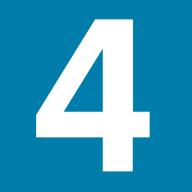my take on education and learning

Why, despite living in an age of unprecedented access to knowledge, do so many people feel that education is fundamentally broken? As someone who has navigated the world of formal education, self-study, and teaching, I’ve picked up insights that I’d like to share.
As we all "stand on the shoulders of giants," I’d like to start by recommending a few resources that dive deeper into learning than I can do in this blog post - stuff that has been super valuable to me.
On how to learn fast I can't recommend Tim Ferris enough. He talks about his methods in 4-hour Chef book, which is "not a cookbook, but a book about accelerated learning". Check out this podcast episode where he goes into even more detail:

And certainly read Ultralearning by Scott H. Young:

why i'm talking about education?
Why do I even have the right to talk about education? Well, I’m definitely not claiming to be an expert, but here are a few things that might convince you to keep reading:
- got two official degrees (Bachelors and Masters)
- made my parents happy by nailing perfect grades throughout middle and high school
- completed or audited dozens of online courses on all sorts of topics - from finance to cooking to poker
- fluent in English and French, taught myself Spanish to fluency, learned Swedish to some extent (good learning on why not to fluency)
More importantly, I’ve been teaching since high school. In fact, the first money I ever earned was by tutoring a classmate in Math.
I also recently took PrinciplesYou assessment created by Ray Dalio as a complement to his book "Principles: Life and Work" (must-read). To my "surprise", it labeled me as a Growth Seeker, Explorer, and Coach. Sounds about right!
In other words, I love learning some random stuff and teaching that stuff to others.
current state of education
Education is one of the most debated topics worldwide. Despite all the resources we have these days - online and offline - I haven't met a single person who is comfortable with the level of education in their country. Kazakhs, Russians, Argentinians, Portuguese, Brazilians, Spanish, French, Americans or even the Swedes - all of them complain that "education is broken".
Yet, with institutions like MIT, Harvard, and Stanford sharing courses online, plus all these e-learning platforms popping up, I wonder: Is education truly broken, or are we just not using all these resources the right way?
Maybe we confuse education with entertainment and wrongly believe that learning should be fun and easy. Take Duolingo, for example—it’s become insanely popular by gamifying language learning, and people love to brag about their “streaks.” But honestly, I’ve found it pretty useless, and I don’t know a single person who’s actually become fluent just from using Duolingo. Andrej Karpathy, the guy behind Tesla Autopilot and one of the co-founders of OpenAI, believes we need "mental equivalent of sweating". I definitely "sweated" my way through learning English as a kid, French as a high school student, and Quantum Physics in college.
When I was growing up, getting a tutor for one-on-one help was pretty typical, and parents were always stressing about class sizes. Now that I’ve got kids of my own, I get that worry too sometimes. But here’s the thing: that kind of personalized attention doesn’t scale. Instead, we’ve ended up with this explosion of online resources that make education more accessible, but with way less personalization.
The issue, I believe, isn’t the lack of content but rather how we engage with it. For me, if there’s one big takeaway from all my years in school, it’s this: I learn best by reading, not listening. I'd rather dive into books, slides and articles than watch YouTube videos and, frankly, listen to lectures. But I know people who are the total opposite - they struggled with reading but crushed it when they switched to audiobooks and YouTube tutorials.
So, how can we learn more effectively in this imperfect system? Let’s explore some essential scientific principles that can transform our learning experience.
effective learning principles
There are several well-researched techniques that can dramatically improve how we learn:
- Spaced Practice / Distributed Practice: Instead of cramming information in one go, spacing out learning over time leads to better long-term retention. Have you ever prepared for an exam the day or night before, only to forget half the material a few months later? I definitely don't remember half of History of Kazakhstan. It does take some planning and self-control though, because you've got to revisit material right when you're starting to forget it.
- Retrieval Practice: Actively recalling information, rather than just reviewing it, strengthens memory. Quizzing yourself on a topic is far more effective than passively rereading notes. Basically, the rule is: produce more than you consume.
- Interleaving: Mixing up different subjects, topics or methods of acquiring information during your study session. For instance, while learning data science, alternating between Python programming, statistics, and data visualization can deepen comprehension.
- Elaboration: Connecting new knowledge to what you already know makes it more memorable and deepens understanding and organization of concepts. For example, learning Spanish was way easier for me because I linked a lot of the words to French - turns out, they're often similar or even identical (just pronounced differently).
- Personalization: Everyone learns differently. Tailoring the learning experience to your unique needs can be tricky in a traditional classroom but it's crucial. It essentially means finding the right spacing intervals (Spaced Practice), choosing the right level of challenge (Retrieval Practice), and connecting concepts (Elaboration).
I’ve tried out all these techniques in my own learning, so let me share how they worked for me and what other stuff has helped along the way.
personal learnings
Here is few things I've learned from my own experience:
- Teaching: This is probably the most direct form of retrieval practice out there. During my Master’s, I’d explain everything I was learning to my wife, who has no technical background at all. By the end, she knew more about how Hadoop (big data) works than some of my classmates. Teaching forces you to simplify complex ideas and spot the gaps in your understanding. If my wife gets it, I know I’ve mastered the concept.
- Learn by doing: Before starting my Master's in Business Analytics and Big Data, I took few online courses on using Python for data. Then, somehow, I landed a freelance gig to build a custom BI dashboard, despite not mastering the tools. I essentially learned tools on the job. I ran into real-world problems, searched StackOverflow for answers, built my skills as I went along, and got paid for it.
- Using multiple sources: While studying Physics for my Bachelor's, I also read and watched a lot of Richard Feynman’s lectures. While studying Machine Learning for my Master's, I also followed Andrew Ng’s online courses. Seeing the same concepts from different perspectives was extremely helpful. The more sources, the better - especially if you mix both Soviet/European sources and American sources, as often they have completely views on the same topic.
- Shortening the path to new knowledge: It is the closest to Elaboration technique that I do. When I first started learning Spanish, I used Russian resources, but it was tough since there weren’t many and some concepts didn’t translate well. Switching to English resources helped a bit since Americans learn Spanish more often, but the real game-changer was when I got Assimil book, a French self-study guide. Learning Spanish from French was so much easier, since both languages have a lot in common.
- Mixing Principles-First and Application-First Approaches: In my Soviet-style education (high school), it was all about mastering the principles. I was asked to learn Math’s axioms and was evaluated on how well I can prove theorems and derive formulas. Fast forward to college with an American-style approach, and now I was asked to memorize formulas and was evaluated on how well I can apply them to problems. I see the same thing in Data Science today—European schools focus heavily on the math behind ML algorithms, while the American approach is more about building ML solutions and often skipping over the finer details. I found that combining both approaches gives me right level of understanding and ability to apply that knowledge in the real-world.
- Habit and motivation: Building a habit was key for me - it took away the constant planning, consumption of mental energy (willpower), and worries about staying motivated. For example, every time I drove to college, I'd listen to Spanish podcasts. Now, on my way to Brazilian Jiu Jitsu (BJJ) practice I tune into a Portuguese learning podcast. On the flip side, when I tried to learn Swedish, I struggled because I didn't have a habit or a strong motivation (everyone speaks English in Sweden). Looking back, I should've just made it a habit to learn Swedish during my commute to work.
can ai be the future of education?
Lately, I’ve been using large language models (LLMs) to ask questions and clarify doubts. These AI tools give instant feedback, explanations, and alternative perspectives, which makes them super valuable for personalizing how I learn. I've made huge progress with new tech stacks just by chatting with GitHub Co-pilot (Visual Studio Code) or Claude 3.5 Sonnet in my Cursor IDE, asking things like
- What does this block of code do?
- How can I improve this code?
- How can I do X?
- Explain how Y works
This got me thinking:
It’s a challenge worth exploring, because AI has the potential to adapt learning paths to match each person's progress, strengths, weaknesses, and background.
It's easy to imagine AI:
- creating custom quizzes just for you
- adjusting the difficulty based on your progress
- suggesting topics you need to revisit
- offering explanations using the knowledge you already have
- providing feedback on your work
I genuinely believe that the future of education lies in combining these tried-and-tested learning techniques with AI to create something that’s both scalable and personal. Stay tuned—I’m excited to explore this more and share updates as I figure it out.






